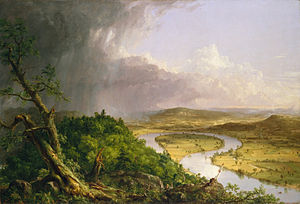All AP Art History Resources
Example Questions
Example Question #331 : Ap Art History

The painting depicts members of the family and court of what ruler?
King George III
Mary Queen of Scots
William and Mary
King Philip IV of Spain
Queen Elizabeth I
King Philip IV of Spain
The painting is Las Meninas by Velasquez, and was painted in 1656 during the Spanish Golden Age during King Philip's reign. It depicts his the young Infanta Margaret Theresa, several ladies in waiting, dwarfs, and Velasquez himself.
Image is in the public domain, accessed through WikiArt: http://www.wikiart.org/en/diego-velazquez/las-meninas-detail-of-the-lower-half-depicting-the-family-of-philip-iv-of-spain-1656
Example Question #332 : Ap Art History

http://www.wikiart.org/en/diego-velazquez/las-meninas-detail-of-the-lower-half-depicting-the-family-of-philip-iv-of-spain-1656
Whose view do we take on when looking at this painting?
The King and Queen
The Infanta
The dog
Velasquez
The Spanish people
The King and Queen
We are looking at the scene from the perspective of an outsider, and a famous detail of the painting is the reflection of the King and Queen in the mirror at the back of the room. Thus, our view is actually that of the King's, taking in the way Velasquez is painting his family.
Image is in the public domain, accessed through WikiArt: http://www.wikiart.org/en/diego-velazquez/las-meninas-detail-of-the-lower-half-depicting-the-family-of-philip-iv-of-spain-1656
Example Question #333 : 2 D Art
What artist's Jug in the Form of a Head sculpture, which is missing an ear, is believed to be inspired by his traumatic relationship with Van Gogh?
Matisse
Degas
Gauguin
Renoir
Cezanne
Gauguin
The sculpture is a reflection of Gaugin's uneasy relationship with Van Gogh. The two became friends when Van Gogh and his brother purchased several of Gaugin's paintings. They went on to work together for nine weeks at Vincent's Yellow House, during which time their friendship cooled. The night Van Gogh cut his ear off, the artist had earlier confronted Gaugin with a razor blade. The sculpture shows Gaugin's ear cut off as a reference to his former friend.
Example Question #333 : Ap Art History

The work shown here was closely related in ideals and philosophical backing to the intellectual movement known as __________________.
Positivism
Neoplatonism
Calvinism
Transcendentalism
Transcendentalism
Thomas Cole and other Hudson River School artists desired to show the way that God's creation of nature was a sublime gift that should be held in awe, a sense shared by transcendentalist authors such as Ralph Waldo Emerson and Henry David Thoreau. In The Oxbow (View From Mount Holyoke, Northampton, Massachusetts, after a Thunderstorm), Cole presents a thunderstorm coming over a picturesque scene of a New England town, enhancing nature's awesome power over humanity.
Artwork from Wikimedia Commons: https://commons.wikimedia.org/wiki/File:Cole_Thomas_The_Oxbow_(The_Connecticut_River_near_Northampton_1836).jpg
Example Question #334 : Ap Art History

The Oxbow (View From Mount Holyoke, Northampton, Massachusetts, after a Thunderstorm), by Thomas Cole, was most significantly influenced by _______________.
Realism
the Grand Manner
Romanticism
Neoclassicism
Romanticism
Thomas Cole and his followers in the Hudson River School were keen adherents to the ideals of Romanticism, which valued individual liberty, nature, and emotionalism. In The Oxbow (View From Mount Holyoke, Northampton, Massachusetts, after a Thunderstorm), a wild landscape is presented with an oncoming storm hitting the small glimpse of civilization shown in the painting, echoing key themes of Romanticism.
Artwork from Wikimedia Commons: https://commons.wikimedia.org/wiki/File:Cole_Thomas_The_Oxbow_(The_Connecticut_River_near_Northampton_1836).jpg
Certified Tutor
Certified Tutor
All AP Art History Resources



